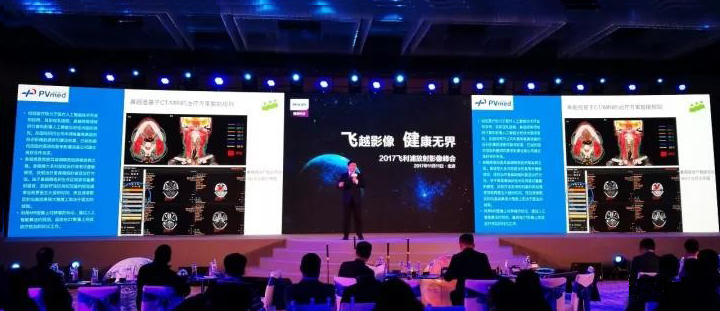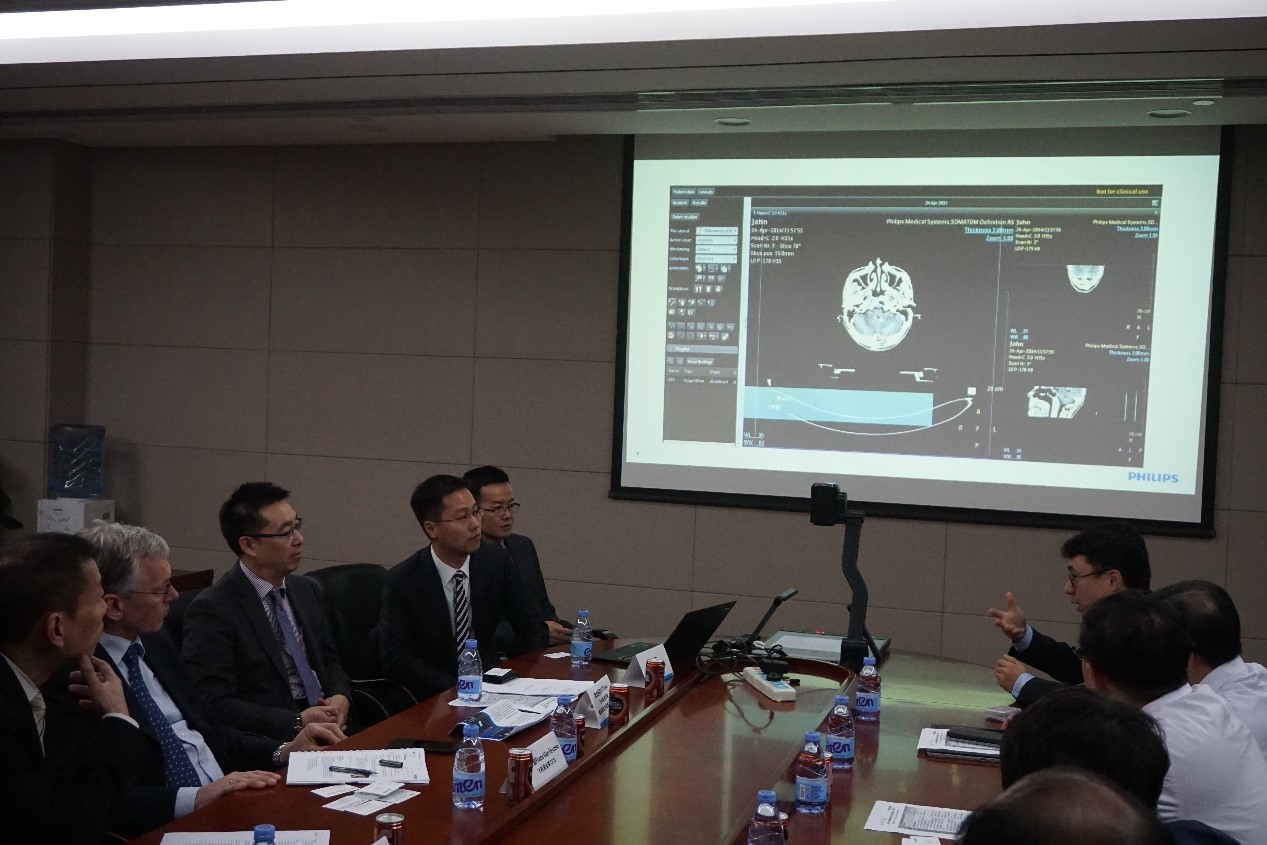On December 1, 2017, the 2017 Radiological Society of North America (RSNA), which is known as the best annual global radiology conference, ended in Chicago. Philips released a revolutionary artificial intelligence platform IntelliSpace Discovery 2.0 (ISD2.0). As the only AI partner of the platform, PVmed had attracted great attention from the industry. Its CT/MRI-based automatic delineation system for nasopharyngeal carcinoma radiotherapy has been embedded in the ISD platform.

Different from other AI companies which focus on diagnosis of pulmonary nodules and diabetic retinopathy, PVmed choose to solve the difficult problem of automatic delineation for radiotherapy target which is a clinical pain points. All the data were marked by the expert of the Cancer Hospital affiliated to Sun Yat-sen University, so that PVmed has the highest quality data set in the world. PVmed developed the world's first automatic delineation system for nasopharyngeal carcinoma radiotherapy based on these data. The system can help doctors to delineate not only gross tumor volume (GTV) but also clinical target volume (CTV). CTV delineation is the most difficult and time-consuming part of target delineation, but it is the key step to control tumor recurrence and metastasis. The products of PVmed can shorten the delineation time from hours to minutes while ensuring the accuracy, which improves the efficiency of doctors significantly.
Early on November 11th, the Philips Radiation Imaging Summit was held in Beijing. a number of innovative medical imaging diagnostic products were released. As a senior digital solution manager, Dr. Ning Guo from Philips introduced PVmed’s automatic delineation system of nasopharyngeal carcinoma radiotherapy. He highly praised the improvement of clinical efficiency by this product embedded in the ISD platform.

On December 7, Philips and the Sun Yat-sen University Cancer Center signed a strategic cooperation agreement to collaborate on research and clinical practice of imaging diagnosis and treatment planning. Frans Van Houton, Global CEO of Philips, Guowei He, CEO of Greater China, and Zhenyu Zhou, president of Imaging Research Institute listened to PVmed founder Yao Lu’s introduction of automatic delineation system of nasopharyngeal carcinoma radiotherapy. They fully affirmed the prospect of the cooperation of the product embedded to the Philips ISD platform.
By the end of October 2017, there are 114 medical AI related startups in China. Among the AI companies, PVmed stands out from the crowd based on its leading R&D capabilities and multi-modal multi-disease products. After careful selection, Philips chose PVmed as the only partner to join the ISD platform.
Yao Lu, the founder of PVmed, is an expert of " The Recruitment Program of Global Young Professionals ", leader of national medical imaging major project, researcher of University of Michigan Medical School. He is also professor, doctoral supervisor and chief of computational medical imaging laboratory, Sun Yat-sen University. He has more than 10 years of experience in medical imaging post-processing, medical imaging analysis and AI research and he is experienced in team building and talent training in top institutions. The core members of PVmed are all from famous universities such as the University of Michigan, Carnegie Mellon, and Erlangen-Nuremberg University, etc. They developed the knowledge-based machine learning theory and algorithm for small sample which leads the industry. This algorithm solves the problem of dependence on large-scale data sets when training deep learning model.
Besides automatic delineation system for nasopharyngeal carcinoma radiotherapy, PVmed has formed multi-modal multi-disease products of imaging-aided diagnosis and pathological diagnosis for breast cancer, common lung diseases, liver cancer, lung cancer and cervical cancer. All these are high-value products that can be applied for radiology, pathology, and radiotherapy.
Philips ISD platform explores multi-modal imaging integration and imaging feature mining. It can provide the function of lesions tracking and advanced feature description. PVmed will cooperate with Philips to build the medical AI ecosystem together that is approaching the ultimate goal of beating all diseases.
